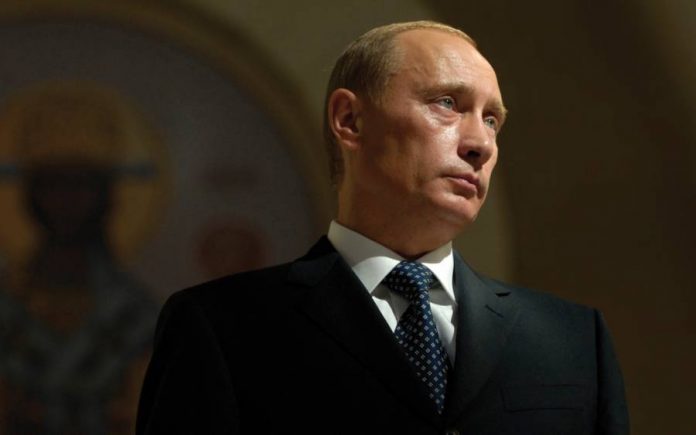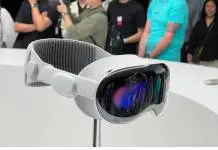
On Monday, the alleged Russian hackers that interfered on the 2016 Presidential Elections of the United Stated made headlines again, although this time for more lighthearted reasons.
A Reddit user posted on the Fallout 4 subreddit a screenshot of CNN using footage from the Bethesda title to illustrate Russian hacking. The images belong to one of the series’ mini-games, which involves hacking a computer.
While the report included this footage most likely unintentionally, it fanned the flames of the national debate once again, this time adding the fake news controversy to the mix due to the nature of the images.
Some media outlets have deemed this saga the beginning of a ‘Cyber Cold War’ between the U.S. and Russia, so it is worth going over the facts from the beginning.
Internet Trolls and Social Media: Where it all may have started
Although the cyber-attacks only began in 2016, some people go as far back as 2015 and the beginning of the presidential race when it comes to tracing the origin of Trump’s success and Russia’s involvement in the elections.
Following Donald Trump’s official announcement to run for President of the United States, social media erupted with dismissing comments, memes, and satirical pieces making fun of the business mogul political aspirations.
However, in corners of the internet not as mainstream like 4Chan and Reddit, users rallied behind Trump and supported his candidacy in what seemed to be yet another meme-fueled movement.
In spite of this first impression, the online campaign was real to the point of transforming the landscape of sites like Reddit in just a matter of months. Intelligence officials have yet to address or link Russia directly involvement to these propaganda efforts on the internet.
The DNC Leak: The first incident
In July last year, Wikileaks published a collection of emails authored by several officials of the Democratic National Committee between January 2015 and May 2016.
At the moment of the controversy, Russia was just a usual suspect in the data breach, but the Guccifer 2.0 hacker (or hackers) claimed responsibility for the breach after the scandal blew up.
The emails showed the DNC had manipulated the primary elections of the Democratic Party to favor Hillary Clinton above Bernie Sanders. Debbie Wasserman Schultz, chair of the organization, resigned as a result of the scandal.
Later analysis by the CIA concluded Russia was, in fact, involved in the attack and that it was one of the various efforts to elect Donald Trump as President of the United States.
Julian Assange, the founder of Wikileaks, recently denied the source of the DNC leak was of Russian origin or any country whatsoever.
The Podesta Emails: A simple phishing attack
The Chairman of Hillary Clinton’s presidential campaign, John Podesta, clicked on an email he shouldn’t have back in March 2016.
The email in question was from Google, or so it seemed. It contained a security notice, alerting the executive of a potential data breach. A link attached to the mail prompted Podesta to enter his password, and the rest is history.
U.S. intelligence community members traced back the phishing attack to the Fancy Bear hacking group, a rogue cybercriminal organization with ties to the Russian government.
The attack resulted in thousands of Podesta’s emails being published on WikiLeaks between October and November. The correspondence contained evidence of questionable activities by the Clinton campaign and its associates.
FBI and CIA reports: Russia was involved
Following the DNC leak and the October surprise that were the Podesta emails, the intelligence agencies of the United States conducted separate investigations and issued reports on the matter of Russian influence in the 2016 elections.
Both the CIA and the FBI agree in one key aspect: Russian conducted cyber-attacks on U.S. officials and organizations during the 2016 presidential campaign. However, they differ in the motives the state may have had to interfere.
On the one hand, the CIA had a hunch ever since last summer that Russia and Vladimir Putin were trying to derail the elections. Later reports in October and December were more explicit to imply the Russians were acting to favor Donald Trump directly.
The FBI, on the other hand, has been more cautious with its statements. The bureau said that, while Russia was indeed a part of this whole scheme, they could not pinpoint an apparent motive.
Retaliation: Obama Sanctions to Russian Officials
On December 29, President Barack Obama imposed sanctions on a total of 39 Russian officials operating on American soil, giving them 72 hours to abandon the country and declaring them persona non grata.
Obama’s actions responded to the report issued by the Intelligence Community earlier in the month showing Russia’s interference in the election process. The President said it would act accordingly, although he did not give further details.
The sanctions represent one of the harshest political moves against the European giant since the Cold War, but the nation led by Vladimir Putin has so far dismissed these efforts.
The Donald Trump Administration: What now?
With Donald Trump taking office on January 20, political analysts have said it would be easy for him just to overturn the sanctions imposed by Obama and welcome back the Russian operatives.
Beyond that, the landscape does not seem exactly set for the next Cold War, since both Trump administration and Russian national officials as high up as Putin himself have praised each other’s efforts during this transition period.
Russia has categorically denied all allegations of involvement in U.S. politics, but national and international independent cyber security agencies back up the government’s claims of their attacks.
Donald Trump has recently stated there is no way to know for sure if Russia was the perpetrator of the attack and criticized Obama for not providing evidence.
The U.S. government has yet to disclose compromising evidence to the public that shows Russia explicitly manipulating the 2016 presidential elections to favor the President-elect.










